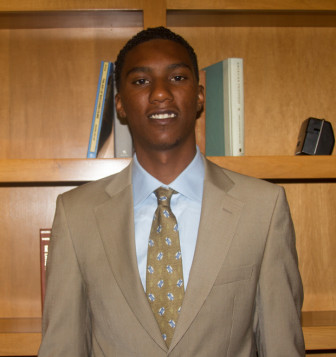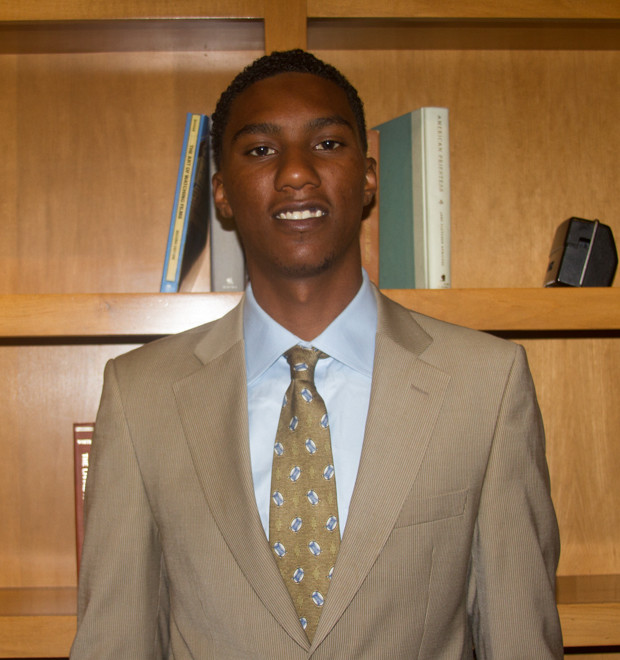 Exhilaration jolted through my body when I stepped back onto the grounds of Central Juvenile Hall for the first time since my release. I finally knew what it felt like to come back as a free man and not as a detained juvenile. I cherished how different it felt. Now, I was wearing my own clothes and not the dull gray uniform of the hall. My arms dangled freely as I walked without anyone telling me to walk in a line with my hands behind my back. I even had a chance to chat with some of the juvenile hall’s probation officers, who were surprised to see me. The last time they had I was sitting in my cell.
Exhilaration jolted through my body when I stepped back onto the grounds of Central Juvenile Hall for the first time since my release. I finally knew what it felt like to come back as a free man and not as a detained juvenile. I cherished how different it felt. Now, I was wearing my own clothes and not the dull gray uniform of the hall. My arms dangled freely as I walked without anyone telling me to walk in a line with my hands behind my back. I even had a chance to chat with some of the juvenile hall’s probation officers, who were surprised to see me. The last time they had I was sitting in my cell.
My first day of freedom after 18 long months of captivity was Oct. 8, 2010. That was when reality quickly settled in. I was sitting at a table with my father and a few friends at a Denny’s restaurant, eating some bacon. My chest was poked out and my shoulders were buffed up. Noticing this, one of my friends jokingly said “Al, you out. You can relax and quit acting hard now.” I found that really funny because I was not trying to look tough. After being in jail for so long I had picked up the habit of trying to look like a thug while sitting at the dinner table. I was institutionalized. I did not even remember the proper way to use a knife and fork to cut my pancakes.
During my time in the halls, I was a student of InsideOut Writers, a nonprofit organization that conducts creative writing classes in the L.A. County juvenile halls with the hope of reducing recidivism. The Monday after I was released one of my writing teachers, Matthew Mizel, brought me to the IOW office. They welcomed me into the family and I joined the Alumni Program, IOW’s re-entry service component for students who have been released. Everyone was so happy to meet me. I had not seen that many smiles in the same place in a very long time. It was definitely what I needed at that point.
IOW showed me the ropes of how to obtain a California I.D. card, complete a job résumé and apply for college. My reintegration into society was not as difficult as it could have been because of the help IOW provided, but I still encountered problems on my own.
I found I didn’t know how to communicate well with others. I would use language that I learned in jail. One time I asked my grandmother if I could take a “sit down,” which refers to sitting down to use the toilet. She asked me what was I talking about and I explained. She laughed and told me I didn’t have to ask her for permission to use the restroom.
Psychologically I was the same high school kid who was sent to juvenile hall, but I was a few years older and eligible to enter the adult criminal justice system. I was still labeled as a gang member and I was now responsible for going to school and keeping a job. My days were now consumed with classes, work and attending special events. I had to man up fast, whether I liked it or not.
The biggest issue I faced was trying to stay off the radar of my peers and the police while still residing in the same community I got caught up in. I had not yet realized that it was a dangerous risk just walking down the street.
I was mostly successful at staying out the way until one morning on my day off. I was in the Jungles neighborhood of L.A., walking by myself to the local park to play basketball when I was stopped by LAPD. This was my first encounter with law enforcement since my release. They hopped out of their car and started asking me where was I going and if I was on probation. I told them I was not on probation, it was none of their business where I was going and that they had no legit reason for handcuffing me.
I remember one of the officers asking me if I was from around the area because they had not seen me before and I did not seem accustomed to the frequent stops. They completed a field card on me and then let me go. That is when I realized that no matter how much you transform or how long you are away, when you come back you are always perceived as a villain. If only they knew that I was really one of the good guys.
However, IOW recognized my personal growth and invited me to attend their annual writer’s retreat as an alum this year at Central Juvenile Hall. I told the kids that I was in their position just a few years earlier and I shared how I coped with that experience. I told them about my acceptance to Morehouse College and I stressed that change can’t begin the moment they are released. It must start now, while they are still incarcerated. They must first prepare mentally and educate themselves before they are thrown back out into the real world where they will be tested constantly. The tables can and will turn for the better but only if they put in the necessary work.
Alton Pitre is a 23 year-old native of Los Angeles, Calif. He is a juvenile justice ambassador, studies journalism at LA Valley College and was recently accepted to Morehouse College.

Pingback: Article: “The Uneasy Transition from Juvenile Hall to Life on the Outside” By Alton Pitre
Pingback: Relato personal, EEUU: The Uneasy Transition from Juvenile Hall to Life on the Outside | Juvenile Justice Information Exchange | NotiProyecto B
Pingback: The Uneasy Transition from Juvenile Hall to Life on the Outside | Racialicious - the intersection of race and pop culture
I’ve worked in the institutions where this young man was detained. It’s good to see that our programs are having a positive influence on some of our youth. The media doesn’t report that often on success stories as this one. I will make sure that I push this story forward.
Darrel, thanks for your support. See more of my story here: http://www.AfricanInAmerica.org/altonpitre
Pingback: How I went from being locked up in juvenile hall to speaking to kids there | Life is a Jungle